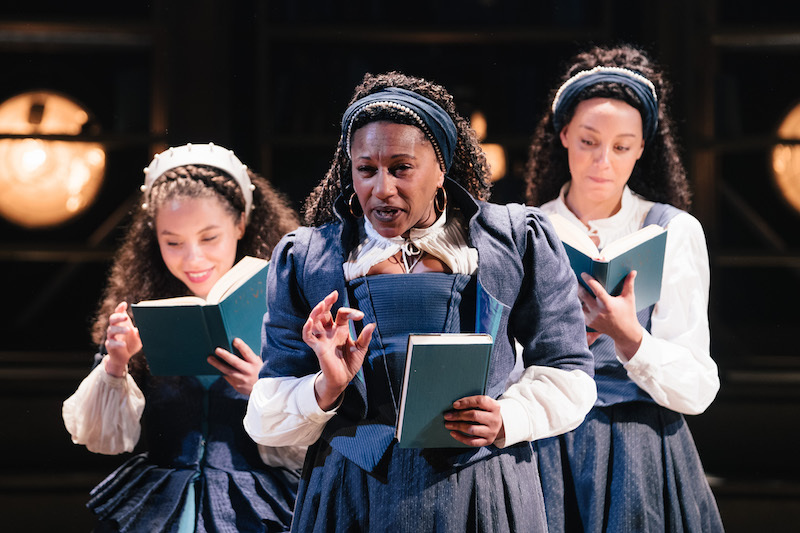So was Lanier’s publication religious poetry or subversive feminist commentary? The playwright Morgan Lloyd Malcolm reclaims and rehabilitates Emilia as an early feminist campaigner, using her life as a vehicle to rally to feminist demands for equality and justice. The production is a 21st-century makeover of 16th-century lives, flirting with modern song, dance, colloquialisms and trends, including flossing, which is hilarious. There are many humorous moments; wordplay, bawdiness and innuendo, perhaps reflecting Shakespeare’s comedies.
Although Emilia, the play, exhorted us to focus on Emilia’s intellectual achievements, it does rely on her having a sexual relationship with Shakespeare as a symbol of women’s voices being stifled. Shakespeare is portrayed as stealing Emilia’s ideas, often using them verbatim in his plays. A contemporary commentator and descendant relies on the fact that there are characters called Emilia in 4 of Shakespeare's plays, in addition to the “Dark Lady Sonnets”, as evidence of Lanier being his muse, or the author of some of his works, if not his lover. However, the former is circumstantial and the latter speculative, there is no hard evidence. But this doesn’t matter, this is a play, not a documentary.
The biographies of Emilia and Shakespeare make useful devices for the feminist political messages that are repeatedly emphasised throughout the play. The Emilias inform us that she represents the voices of women who have gone unheard or have been silenced and not allowed to speak for themselves for centuries. In the second half of the play, Emilia and other characters in the play provide a rallying cry to show that they will no longer be silenced. They will use the muscle memory of women who have been silenced, abused and mistreated to speak out.
Emilia, the play, prompted me to delve further and discover more about her. In this way, Emilia succeeds in raising awareness of Lanier’s literary achievements and political legacy which, as we are told, have been forgotten. I would have preferred the play to look more at Lanier’s life and works. The play repackages Lanier as a feminist activist, maybe even an icon and ends as a feminist political rally.
Emilia is playing at the Vaudeville Theatre through 15 June.

